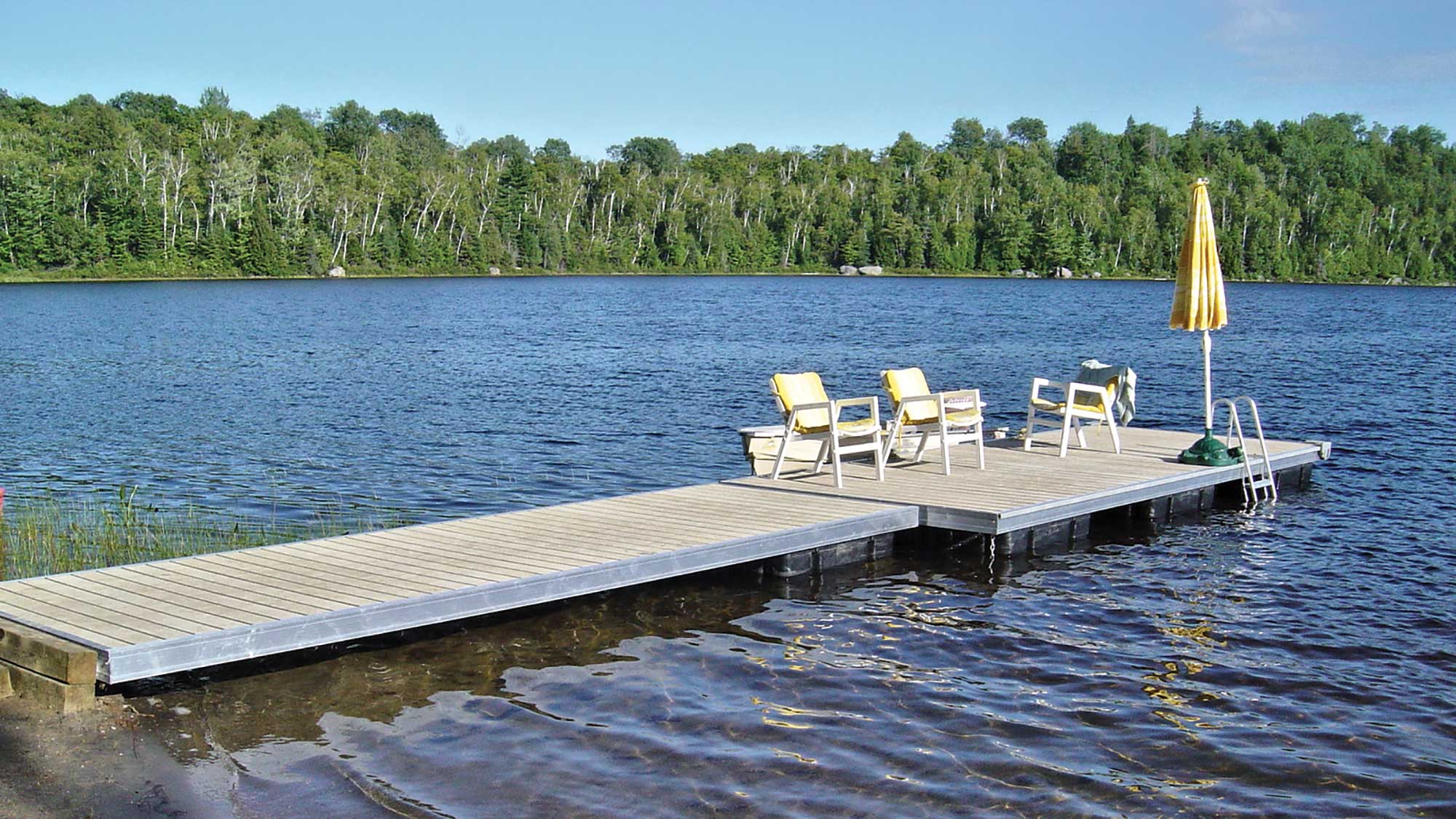Benefits of Working with a Developed Floating Dock Company for Comfort
Benefits of Working with a Developed Floating Dock Company for Comfort
Blog Article
Floating Docks: The Ideal Option for Versatile Water Gain Access To
Floating docks present an engaging remedy for a selection of water accessibility needs, offering convenience that goes beyond standard mooring choices. Their ability to adapt to fluctuating water degrees while making certain security and security makes them specifically beneficial for both leisure and industrial applications. Additionally, the modular nature of floating docks assists in modification, dealing with specific needs. Nonetheless, the nuances of setup and maintenance, along with the series of applications, necessitate a closer assessment to fully value their possible benefits and effects for river gain access to strategies.
Advantages of Floating Docks
Floating docks offer many benefits that improve water gain access to for numerous applications. Their capacity to fall and increase with changing water degrees makes them especially helpful in environments with fluctuating tides or seasonal variations. This adaptability ensures that vessels can quickly moor without issue for the water's depth, supplying a trustworthy system for entertainment, commercial, and commercial uses.
In addition, floating docks are frequently constructed from long lasting materials that withstand deterioration, making them ideal for long-term usage in marine atmospheres. Their installment is usually much less intrusive than traditional set docks, minimizing the environmental impact and helping with quicker deployment (dock company). This flexibility permits for simpler moving or reconfiguration according to user requirements or environmental modifications
Security is one more key advantage; floating docks can offer stable access for people disembarking or boarding from boats and decrease the danger of crashes related to unstable surface areas. Additionally, they can be created to fit a range of devices, such as cleats and fenders, improving capability. In general, floating docks represent an efficient remedy for boosting water access across varied industries while promoting safety and environmental sustainability.

Kinds Of Floating Docks
Various kinds of floating docks accommodate various needs and environments, each made with particular functions to maximize capability. The most usual types consist of modular docks, which include interlacing areas that enable easy customization and growth. These docks are ideal for recreational usage, as they can be tailored to fit various watercraft dimensions and water conditions.
An additional popular alternative is the fixed floating dock, which stays anchored in place but drifts with transforming water degrees. floating docks. This kind is especially suited for areas with very little tidal fluctuations, supplying steady accessibility for angling or swimming. Furthermore, there are drive-on docks, which include a sloped style that allows boats to quickly drive on and off, making them appropriate for personal boat and smaller sized vessels
For business applications, sturdy floating docks are available, built from reinforced products to withstand considerable loads and rough aquatic atmospheres. Lastly, environment-friendly floating docks make use of lasting products and styles to minimize ecological effect, often including attributes like vegetation to support neighborhood wild animals. Recognizing the various kinds of floating docks ensures that users can select the most suitable service for their details demands.
Installation Process Review
A successful installment of floating docks requires careful planning and attention to detail to guarantee optimum performance and security. The initial step includes analyzing the site conditions, including water deepness, existing, and prospective challenges. This analysis informs the option of the proper dock materials and style customized to the details setting.
Next, getting required authorizations is crucial, as numerous territories have laws relating to construction look what i found on water bodies. The installation can proceed when permissions are secured. Begin by preparing the foundation, which might include anchoring systems or pilings tailored to the dock kind and neighborhood problems.
Complying with the structure configuration, put together the dock areas according to producer requirements. Make sure that all elements are securely secured and lined up to endure ecological anxieties. Placement the dock in the marked location, ensuring it is level and steady.

Upkeep Tips and Best Practices
After the installation procedure is total, ongoing maintenance plays an essential duty in making certain the long life and functionality of floating docks. Routine examinations should be performed to recognize any kind of indications of wear, damage, or damage - floating docks. Look for any kind of loose fittings, fractures, or splitting up in the dock sections, as these can endanger architectural integrity
Cleaning the dock is necessary to remove debris, algae, and various other build-up that can affect its appearance and safety. Utilize a gentle pressure laundry periodically to maintain sanitation without triggering damage to the surface area. Additionally, applying a protective sealant every few years can assist enhance longevity and withstand ecological wear.
Take notice of the mooring lines and supports, guaranteeing they are protected and complimentary from deterioration. Change More hints any abject components without delay to prevent dangers. Seasonal changes may also be necessary; throughout extreme weather, enhancing the dock or repositioning can prevent damages.
Applications for Floating Docks
Floating docks offer a multitude of applications, satisfying both leisure and commercial demands. In entertainment setups, they supply seamless accessibility to rivers for tasks such as boating, angling, and swimming. Their adjustable nature enables setup in varying water degrees, ensuring risk-free and secure access regardless of tidal fluctuations.
Readily, floating docks are vital for marinas and waterfront companies. They facilitate the docking of vessels, enabling efficient filling and discharging of products. Their modular style enables very easy growth or reconfiguration to accommodate altering organization demands, making them excellent for watercraft rentals, tour procedures, or angling charters.
Furthermore, floating docks are used in environmental applications sites such as aquatic research study and environment restoration. They can act as systems for clinical research studies, keeping track of water quality, or performing wildlife surveys without disturbing delicate ecological communities.
In commercial contexts, floating docks are utilized in building jobs, supplying accessibility to hard-to-reach areas for equipment and personnel. Their versatility, resilience, and marginal effect on the atmosphere make them an ideal choice for a large range of applications, boosting both capability and availability in numerous water-based atmospheres.
Final Thought
To conclude, floating docks represent an ideal solution for varied water access needs, owing to their flexibility, toughness, and modular design. These structures facilitate safe mooring for various applications while decreasing environmental effect throughout installment. The lowered maintenance requirements better improve their functionality. Floating docks offer as a beneficial property for leisure, business, and ecological projects, making sure trustworthy accessibility to rivers and promoting sustainable practices in marine environments.
Floating docks present an engaging solution for a variety of water accessibility requires, providing adaptability that goes beyond typical mooring alternatives.Floating docks deal various advantages that enhance water access for numerous applications. Generally, floating docks stand for an efficient service for enhancing water access throughout diverse sectors while promoting safety and environmental sustainability.
One more prominent alternative is the stationary floating dock, which stays anchored in place but floats with changing water degrees.In verdict, floating docks represent an ideal solution for varied water accessibility requires, owing to their adaptability, resilience, and modular style.
Report this page